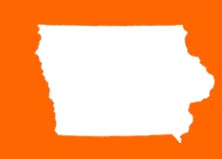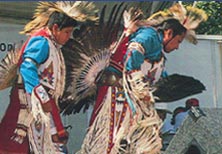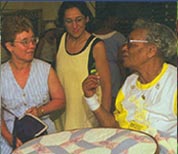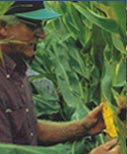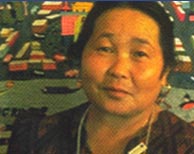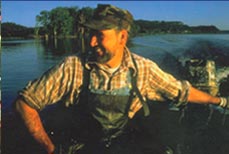|
|
| Knowledge needed for work is passed along in many different ways, and in many different situations. |
|
[PHOTO BY PHYLLIS CARLIN]
On her farm in Bremer County, Janet Gambiaini unloads ear corn into the elevator that goes to the grain bin. |
A riverboat pilot needs to know how to read the river in order to navigate its channels, between bridge piers, and through locks with as many as 14 barges in tow; a commercial fisherman is not only aware of the different types of fish and their habitats, but also of the physical characteristics of the waterways; and a farmer has to stay current on supply and demand locally, nationally, and sometimes even internationally. In this lesson, students will look at the role narrative plays in passing on knowledge, and in teaching and learning about an occupation.
Handouts provide an occupational narrative for the following:
Jack Libbey, a veteran Mississippi River towboat captain from Lansing
John Duccini, a Mississippi River commercial fisherman from Dubuque
Bruce Williams, a family farmer from Villisca
Dr. John W. Sutcliffe, a veterinarian from Audubon, author of Memories of an Iowa Veterinarian
Karmen Mehmen, a family farmer from Plainfield
|
|
| Objectives |
Students will be able to:
| 1. |
Identify worklore, or the stories that grow out of an occupational culture. |
| 2. |
Compare and contrast various narratives. |
| 3. |
Examine and analyze styles and contexts for telling occupational narratives. |
|
|
